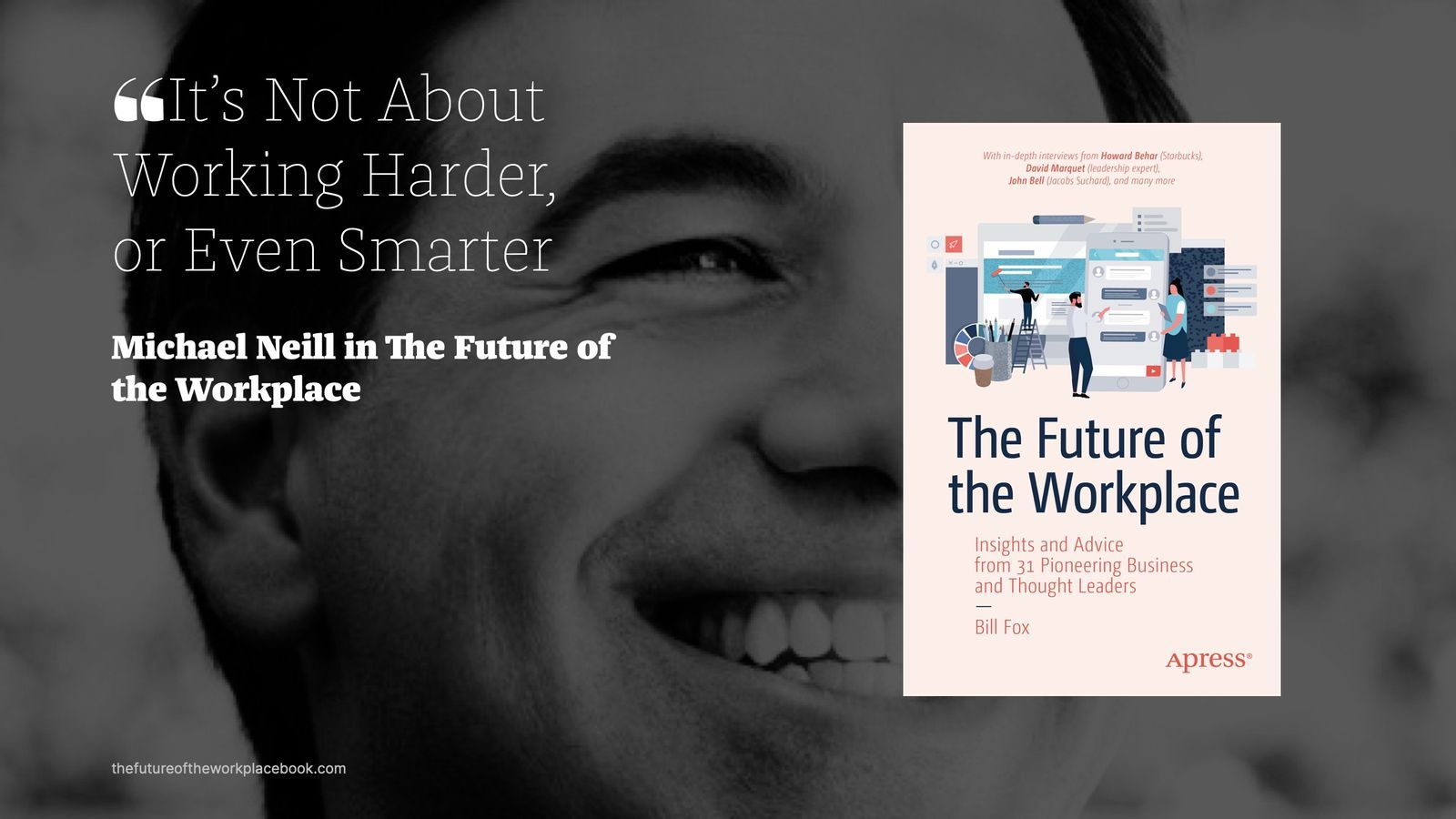It's Not About Working Harder or Even Smarter
It’s not about working harder, or even smarter. It’s about showing up to any project fully committed and completely open.

Michael Neill: Transformative Coach at michaelneil.org. Best-selling author of six books including The Inside-Out Revolution, The Space Within, and Creating the Impossible. His TEDx talk Why Aren’t We Awesomer? has been viewed by over 1 million people.
At Forward Thinking Workplaces, we are discovering the people, insights, and strategies that lead to Forward Thinking minds, leaders, and workplaces of the future — today. Forward Thinking conversations will define the great workplaces of the 21st century. Check out our upcoming Events page or visit billfox.co to learn more.
How can we create workplaces where every voice matters, everyone thrives and finds meaning, and change and innovation happen naturally?
Michael Neill: There are two things that I would say to the first part— where every voice matters.
First off, creating a workplace where every voice matters really just depends on meaning it. In other words, it’s a great sounding thing, but you’ve got to start by seeing—do you actually think every voice matters? Or do you just think that would be a good thing to do? Because if you just think that would be a good thing to do, you’re not going to do it. You’re not going to succeed because ultimately people hear what we mean, not what we say.
The heart of that question is, “Why should every voice matter?” And if you genuinely believe everybody has something to contribute at whatever level they can contribute, then actually there are a million ways to create that workplace. That could range from a suggestion box where the ideas are actually considered to meetings where people listen to one another instead of listening to respond.
You know, to me, a bad meeting is like a Facebook discussion where nobody’s listening and everybody’s making points. A good meeting is a meeting where everyone is listening, and there is space to hear something new beyond what anyone brought into the room with them. But if you don’t fundamentally think that every voice matters, then honestly, you could have the best strategy in the world and it wouldn’t work.
To create a workplace where everyone thrives and finds meaning, you have to begin by showing people where thriving comes from—and where meaning comes from.
Maybe this is an obvious thing for someone who wrote a book called The Inside-Out Revolution to say, but it comes from inside. It does not come from “a workplace.” There is no such thing as a workplace that can do that. But you can have a workplace filled with people who are thriving and who know where to look for meaning.
To accomplish that, first there’s an education component to it. I would say education more than training—though training is one of the ways you can get at education. Coaching is also one of the ways you can get at education. But an education component where people start to learn, “Oh, that amazing feeling I get when I’m engaged, and I’m challenged but not overwhelmed?” It’s a place where creativity is flowing, and I feel great about what I’m doing and how I’m doing it.
That is cultivable from within me. However, there are very clear things that get in the way of that, and when I can take them into account, I will thrive more and more of the time.
So, if I have a workplace where the workers are educated in the inside-out understanding, then they are awake to that capacity to thrive and find meaning in themselves.
I will then have a workplace where people thrive and find meaning. Now I might get lucky, and on a project that people buy into, they’ll have that sense organically. But, that’s going to be sporadic. That’s going to come and go. If I want to make the workplace a place where that consistently happens, then that comes from within the understanding of the people who are working there.
Regarding change and innovation, well the funny thing is that change and innovation do happen naturally when you’re not getting in the way. So that’s easy—that’s the easy one. Stop stopping it! You’ll be fine. I think the main thing to see with change and innovation is that these are natural processes that we either facilitate or inhibit. To introduce a change initiative or innovation initiative is a misunderstanding of change and innovation.
The more we make space for things to unfold—as opposed to trying to make them fit the banks of the river of limited possibility we dug with our habitual thinking—the more they will.
It becomes almost a dance with creative ideas, with fresh ideas, and with innovation rather than a military march. I know there’s a bottom line and a military march has an appeal; it’s just that the military march by design has very little space for change or innovation.
Note: This is a preview of the full interview. The complete interview was selected by Apress for publication and continues in The Future of the Workplace.
